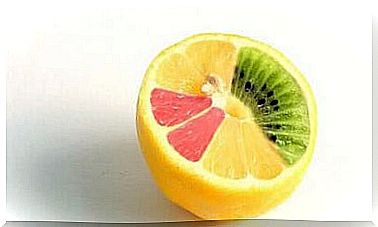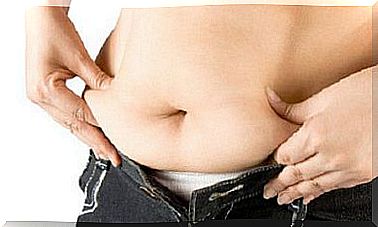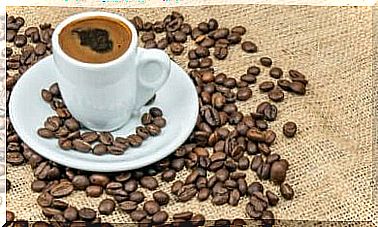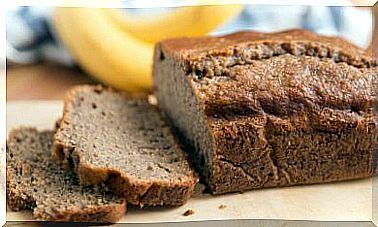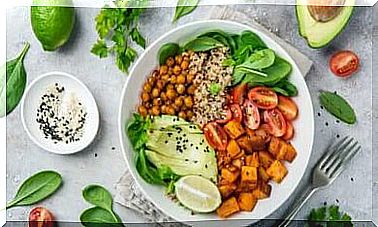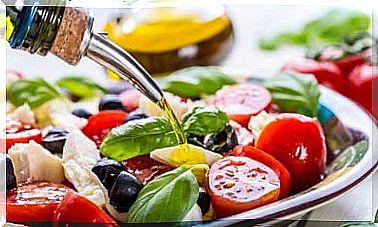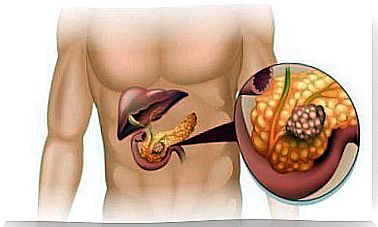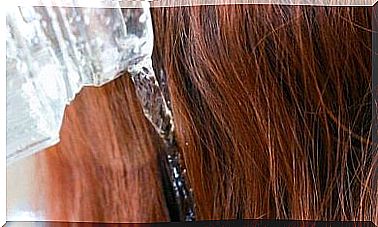COVID-19: Should Food Be Disinfected To Prevent Infection?
Lately, we hear a lot about cleaning products. But do you really have to disinfect food? Kitchen hygiene, food storage and cooking temperature are all things to consider when it comes to preventing infections.
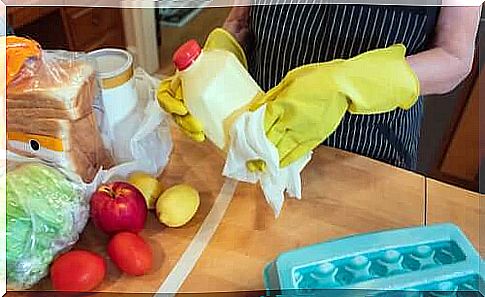
In this context of the coronavirus pandemic, concerns about food safety and the steps that must be taken to prevent infection are on everyone’s mind. When it comes to food, it is natural to wonder whether to disinfect food to prevent infection.
It is important to know the basic measures to apply when handling food. Keep reading this article and you will learn more about it.
Coronavirus and other food pathogens
The measures proposed to reduce the risk of infection are general basic food safety measures. This means that they are not only used to fight the coronavirus: they are used to prevent food contamination in general. According to certain specialist sources, “food is not a probable route of contamination of the coronavirus”. Today, the virus is transmitted from person to person via the respiratory droplets we secrete when we speak, cough or sneeze.
However, it is quite possible for respiratory droplets from an infected person to end up on food. In this case, there is a risk of contamination: the respiratory droplets found on the food can then end up in our mucous membranes. For this reason, and this goes for all pathogens, it is very important to avoid touching our mouth, eyes and nose with our hands when handling food.
It is also important to maintain strict hand hygiene and control the temperatures and times of storage and cooking of all foods. These are essential measures to keep viruses and bacteria at bay.
Is it necessary to disinfect the food?
First and foremost, know that the way food arrives at the point of sale is reliable and that there is no reason to believe that handling food throughout the food chain can cause health problems. All professionals in the food chain have always taken and continue to take the necessary precautions to avoid any problem.
Thus, at first glance, it would not be useful to disinfect food in order to prevent infections, regardless of the pathogen. Nevertheless, it is good to know what is the best way to buy, store and cook each type of food, because it is these measures that will allow us to prevent possible infection, whatever it is.
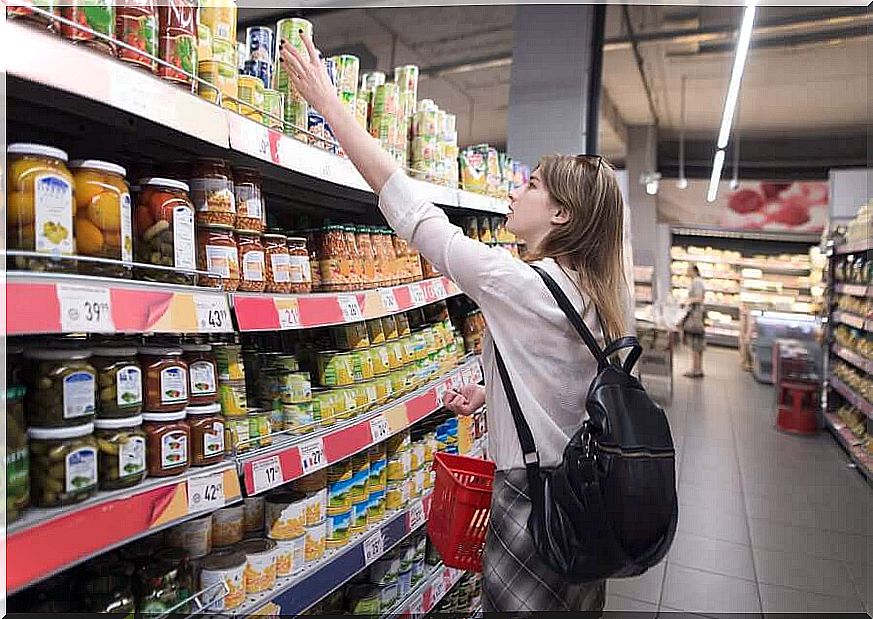
Basic food safety measures
As already commented before and we will never tire of repeating it, when it comes to buying and handling food, it is essential that our hands, the worktop and the kitchen utensils are clean. Even more care needs to be taken when handling different types of food in the same recipe.
With these measures alone, we are already avoiding a possible problem. It is then necessary to take into consideration some specific measures adapted to the different types of food.
1. Meat and fish
The meat is not likely to be contaminated with the coronavirus. However, she can carry bacteria that can cause food poisoning.
The basic measures to be applied for foods of this type are as follows:
- Buy fresh, undamaged produce (ask for clean slices without guts)
- Refrigerate them quickly in the refrigerator and keep them away from other already cooked foods. If you do not plan to consume them within a few days of purchase, keep them in the freezer.
- Make sure food is well cooked before eating it
2 eggs
Eggs are delicate products and one of the main routes of contamination of salmonellosis. It is necessary to keep them at a constant temperature, which is why it is better to store them in the refrigerator. And contrary to what one might think, one should not wash the shell of the egg, because it acts as a protective barrier.
Make sure your eggs are cooked through when it’s time to eat them. Any dish containing eggs that you plan to eat later should be kept in the refrigerator.
3. Fruits and vegetables
Even though heat and cooking kills pathogens that may be on food, including coronavirus, it is not necessary to cook all fresh fruits and vegetables. On the other hand, they must be washed well before consumption.
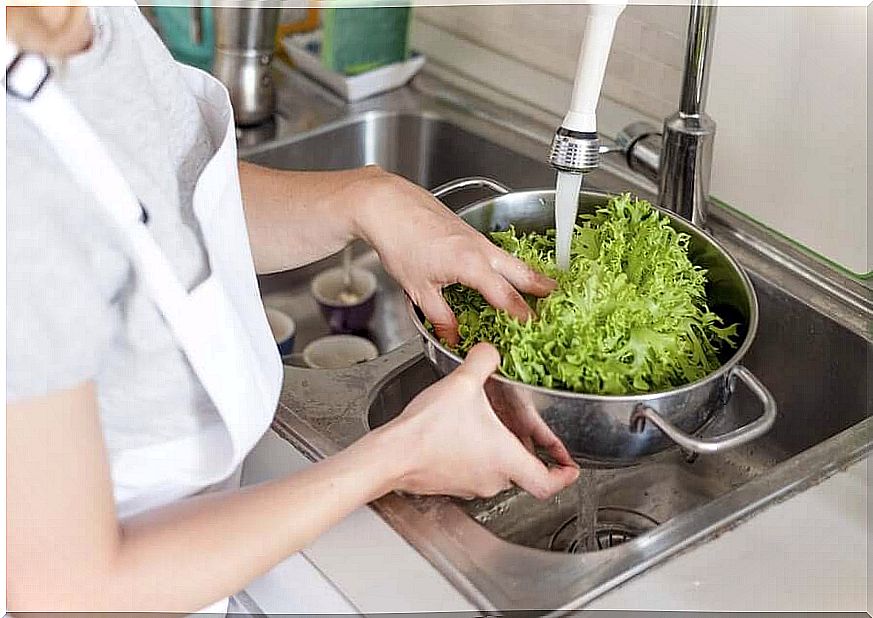
Just rub these foods under a stream of water. You can use a brush provided for this purpose or use your hands. Then dry these foods with a paper towel and store them in a suitable place.
Buy only fruit and vegetables in perfect condition. If you are going to eat these foods without the skin, wash them off before peeling them. Otherwise, dirt from the skin will get on the knife and the fruit will eventually become infected.
Should packaged foods be disinfected?
In this time of the coronavirus pandemic, many people are wondering what to do with groceries when they get home.
With regard to packaged products, they may only have been contaminated if someone touched them with dirty hands or sneezed on them. It is therefore the packaging that can be infected and not the food. As usual, you should wash your hands well and not touch your eyes, nose or mouth when you get home. For added security, you can run a disposable paper or a damp towel over the packaging, or leave the groceries in your bags for a few hours before putting them away in your cupboards.
Food does not need to be sanitized, but precautionary measures must be applied
The safest measures recommended by all specialists are basic and general food safety measures, namely:
- Wash your hands well
- Thoroughly wash the kitchen utensils and the worktop
- Avoid cross contamination between foods
- Store and cook food well

